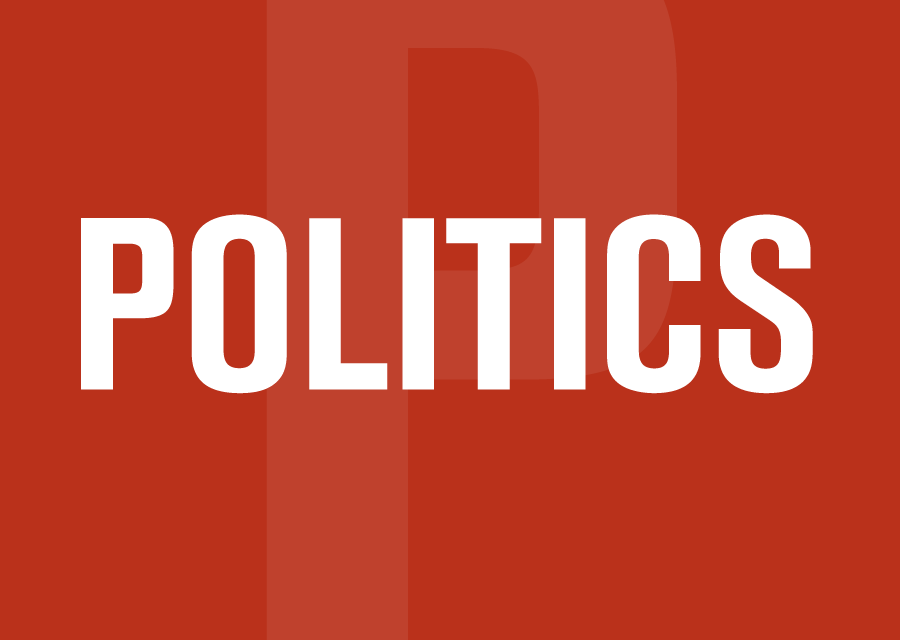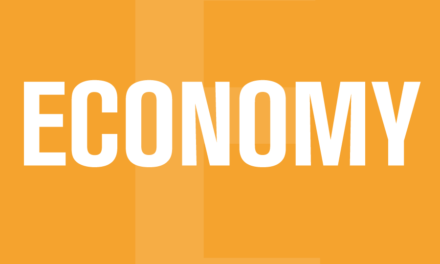The Poilievre Conservatives have made attacks on the “mainstream media” a central element in their corrosive quest for power. On their enemies list, news organizations rank high, not far behind their main nemeses, Justin Trudeau and the carbon tax.Poilievre recently took his grudge against journalism up a notch when he bushwhacked Don Urquhart, editor of the Times Chronicle, a community newspaper serving British Columbia’s Southern Okanagan Valley. In case you missed it, here is what took place.
Interviewed in an orchard, Poilievre munched on an apple while petulantly challenging the premise of interviewer Urquhart’s questions about his populist, divisive approach to politics. Asked about his use of ideological language, the guy who routinely hurls slurs like “woke coalition,” “Marxist government” and “radical leftist authoritarian agenda” at the Liberals and the NDP took umbrage, denying that he ever frames things in terms of left and right. As for Urquhart’s claim he was “taking a page out of the Donald Trump book” Poilievre responded indignantly: “What are you talking about? What page? Give me a page.”
The exchange was part of a longer interview and Poilievre’s political style was barely mentioned in Urquhart’s subsequent report, a generally positive piece about speeding up licensing of immigrant physicians. But the interview was recorded and posted by Poilievre’s aides. The apple munching exchange was seized upon by right wing media around the world, hailing Poilievre as a hero for, as the London Daily Mail put it, “calmly tearing down a reporter.”
Contrary to what Poilievre’s right wing fans believe, the incident was far from a takedown of the big bad “mainstream media” by a scrappy opposition politician. Au contraire. As he has demonstrated, Poilievre is leery of most members of the mainstream media he encounters in Ottawa and does his best to avoid scrums with members of the parliamentary press gallery. What his admirers actually saw in the Okanagan Valley orchard was bullying by a powerful politician of an over-worked small town reporter, struggling with limited resources to keep his community informed.
As Shannon Proudfoot wrote in the Globe and Mail:
Mr. Poilievre is free to reject the premise of the question and deploy all of his considerable rhetorical talents to dispute it, because that’s the way this works. But kicking a journalist in the shins over and over to throw them of balance so you can run away, then turning the exchange into a social-media flex is telling on yourself.
Media not hostile
As well as boosting Poilievre’s profile with the likes of Fox News and Australia’s Sky TV, the stunt was also useful for stoking the Conservative base in Canada. Circulated with the tag line “How do You Like Them Apples” the clip comes with a plea to supporters to pony up so that the Conservatives can get their message to the public without having to go through the allegedly hostile mainstream media. It’s a tactic the Conservatives have been using since the time of Stephen Harper, with the CBC frequently positioned as the target.
But like the apple orchard story the familiar narrative – that mainstream media present an obstacle to Conservative success – is like most of what we hear from the Conservatives, a half truth, at best.
In terms of coverage, the Conservatives have been the beneficiaries of the media’s faithful recitation of the Trudeau government’s shortcomings, which have been piling up after eight years in power. That’s to be expected. But some of the coverage – such as the reporting on Chinese election interference – has gone overboard, to the benefit of the Conservatives.
Making the Conservative pitch even more far-fetched is the actual structure of the mainstream media they rail against. The Conservative assault ignores the fact that a dominant player in the mainstream media is the proudly conservative Postmedia chain of newspapers.
In his recently published book, The Postmedia Effect, Mark Edge reports on an interview with Postmedia’s chief operating officer in which Andrew MacLeod describes the company’s objective as reporting the news from a “pro-free-market, smaller tax, smaller government perspective.” Newspapers may be going the way of the horse-drawn carriage, but in most communities they still set the news agenda. And Postmedia, with its sometimes biased reporting and its stable of right wing commentators, sits atop a newspaper chain the size of which is unprecedented.
The company was started 25 years ago by the Trump-friendly Conrad Black, and has grown through the acquisition of the erstwhile liberal Southam chain and the right-wing Sun tabloids. In addition to owning the Black-founded National Post and the long established Financial Post, Postmedia has a virtual newspaper monopoly in Alberta (32 titles) and New Brunswick (10 titles).
Now controlled by a U.S.-based hedge fund, Postmedia is dominant in Ontario with 58 titles, including daily papers in Toronto, Ottawa, London, Windsor and Kingston. It also owns both major dailies in Vancouver and Saskatchewan, as well as the Montreal Gazette. And in Atlantic Canada Postmedia has extended its reach through Saltwire, which has ditched the Canadian Press in favour of Postmedia’s wire service to fill the pages of the Chronicle-Herald and its newspapers in Cape Breton, Prince Edward Island and Newfoundland and Labrador. Postmedia also has a presence in Manitoba, giving the conservative, small government, low-tax- loving chain influence from coast to coast.
So unless Poilievre is biting the hand that feeds him – hold that thought – without Postmedia, the mainstream media he fulminates against is a much slimmed-down entity. It would consist of couple of dailies in British Columbia, the Free Press in Winnipeg, the Toronto Star and its sister dailies in southern Ontario, the Globe and Mail and the Canadian Press, as well as the TV networks, including of course, the CBC.
So aside from the occasional allegedly “woke” journalist to be exploited in a B.C. apple orchard, that’s what makes up the mainstream media. These are organizations which may have some employees with leftist views but, unlike Postmedia with its acknowledged conservative bias, they operate under the old standard of “objectivity.” Objectiveness dictates that every story has two sides and that a reporter does not openly challenge either of those sides, no matter how bogus its claims – or in the case of Don Urquhart, regardless of the boorishness of an interviewee.
Moreover, Poilievre and his party have been well served by this Postmedia-less mainstream media simply doing its job. After all, It was the Globe and Mail and Global-TV who led the charge on Chinese interference. Before that, it was the Globe and Mail exposing the SNC-Lavalin scandal. As for the CBC – Poilievre reiterated in the orchard interview that he would cut $1 billion from the federal budget by defunding it – it has been thorough and consistent in its coverage of the ravages of inflation on food and shelter costs, adding daily to the notion that, as Poilievre would have it “everything is broken.”
Postmedia and the “bailout”
But Poilievre isn’t about to acknowledge any of that. His quest to demonize the media even seems to run over allies like Postmedia. The party’s post-orchard fundraising pitch declared that “the media doesn’t want Pierre to win. Because Pierre stands for common sense and freedom and the media prefers handouts, bailouts and more government control.”
The reference to handouts and bailouts concerns the Trudeau government’s efforts to help the newspaper industry through measures such as the five-year $595 million tax credit introduced in 2019 to subsidize reporters’ salaries and the recent and controversial Online News Act (Bill C-18). The latter is an attempt to force Meta and Google to pay for Canadian news carried on their platforms.
Poilievre has loudly opposed both the 2019 tax credits and C-18, even though Postmedia has been one of the main recipients of the 2019 bailout and, as Marc Edge’s aforementioned book points out, a strong supporter of Bill C-18. It’s supremely ironic that while attacking Trudeau for allegedly trying to buy positive media coverage through C-18 and the tax credit subsidies, Poilievre has been able to pose as a champion of media freedom even as a Poilievre-friendly media chain reaps benefits from those subsidies and is looking for more.
Perhaps it’s all just a con – media bashing to keep the base happy and the donations flowing in. Maybe a Poilievre government – should that come about – would recognize who its friends are and continue to help Postmedia and the newspaper industry. Instead of defunding the CBC they could decide to kill two birds with one stone – for example curtailing the CBC’s on-line news presence leaving the field open to the newspapers. Instead of subsidies, newspapers would be able to improve their bottom lines by grabbing any ad revenue now going to CBC digital.
Maybe Poilievre in power would stop well short of embracing the kind of rancour displayed by the growing ranks of authoritarians who embrace Trump’s definition of the media as “the enemy of the people.”
But that can’t be taken for granted. if we’ve learned anything from the Trump nightmare it is that demagogues need to be taken at their word. Don’t assume that once they’ve lied and rabble-roused their way to power they will become house broken and revert to acceptable norms. As of now, some journalists and the news organizations they work for are being targeted by the Conservatives. That needs to be taken seriously by those in the mainstream media and their readers, viewers and listeners.
-30-






Richard, Iyour analysis is both brilliant and prophetic. Political shifts in Canada reflect what’s happening elsewhere. The successes of Thatcher & Reagan presaged Mulroney’s. Bill Clinton’s rightward shift coincided with Chretien/Martin’s corrosive neoliberalism. Now, here comes Pierre Poilievre’s version of Trumpist authoritarianism buttressed by populist propaganda of half-truths, outright lies and the demonization of anyone who dares to question. I’m trying to figure out how the media should respond.